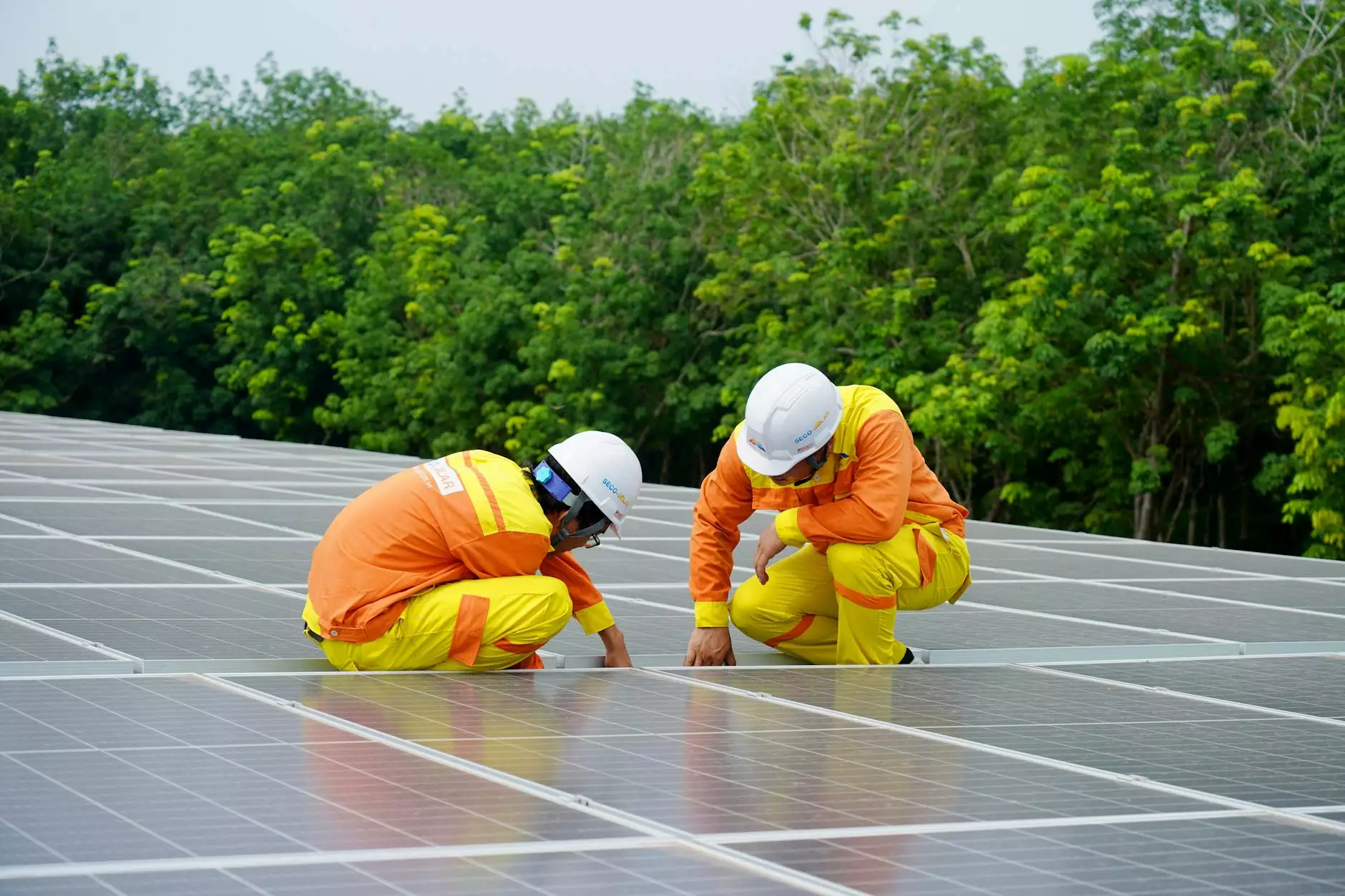The Ultimate Guide to Solar Panels in South Wales

As environmental awareness increases and energy costs continue to rise, many homeowners and businesses in South Wales are considering a renewable energy solution—solar panels. This comprehensive guide will delve into the benefits, installation processes, and financing options available for those considering solar panels in this beautiful region of the UK.
Why Choose Solar Panels in South Wales?
Investing in solar energy is not just about saving money; it’s about contributing to a sustainable future. Here are several compelling reasons to adopt solar panels in South Wales:
- Environmental Benefits: By switching to solar energy, you significantly reduce your carbon footprint, helping combat climate change.
- Energy Independence: Generating your own electricity makes you less reliant on the national grid and the fluctuating prices of fossil fuels.
- Increase Property Value: Homes with solar panel installations often sell for more, making it a valuable investment.
- Government Incentives: Various schemes and grants exist, such as the Feed-in Tariff and Smart Export Guarantee, encouraging solar energy adoption.
Understanding Solar Panel Technology
The science behind solar panels is fascinating and significant for understanding how they contribute to sustainable energy. Solar panels work by converting sunlight into electricity through the photovoltaic (PV) effect. When sunlight strikes the PV cells within the panels, electrons are knocked loose, creating an electrical current that can be harnessed and used.
Types of Solar Panels
There are primarily three types of solar panels available:
- Monocrystalline Panels: Known for their high efficiency and sleek appearance, they are made from a single crystal structure. They tend to perform better in low light conditions, which is beneficial in the often-cloudy weather of South Wales.
- Polycrystalline Panels: These panels are made from multiple silicon crystals and are slightly less efficient but cheaper to produce. They are a popular choice for budget-conscious consumers.
- Thin-Film Panels: Lightweight and flexible, these panels can be integrated into various surfaces, although they generally have lower efficiency compared to crystalline panels.
The Installation Process
Understanding the installation process is crucial for anyone considering solar panels in South Wales. Here’s a detailed overview:
Step 1: Initial Consultation
The first step involves contacting a reputable solar installation company, such as Siweco Energy. During the initial consultation, a technician will assess your property, understand your energy needs, and discuss potential solar solutions tailored to your situation.
Step 2: System Design and Proposal
Once assessed, the company will create a customized solar system design and provide a detailed proposal outlining costs, expected energy savings, and installation timelines.
Step 3: Obtaining Permissions
Before installation can begin, it may be necessary to secure the appropriate planning permission, particularly if your home is listed or located in a conservation area. The installation company typically assists in this process.
Step 4: Installation
Installation generally takes one to three days. Qualified installers will mount the solar panels on your roof or another suitable area, connecting them to your electrical system efficiently and safely.
Step 5: Final Inspection and Activation
After installation, the system will undergo a final inspection to ensure everything complies with safety standards. Once approved, your solar panels will be activated, and you can begin enjoying the benefits of renewable energy!
Financial Considerations
While the initial investment in solar energy can seem substantial, the long-term financial benefits are significant. Here’s a breakdown of the financial aspects of adding solar panels in South Wales:
Upfront Costs
The cost of solar panel installation can vary depending on the size and type of system you choose. Factors include:
- Type of Panels: As mentioned, monocrystalline panels tend to be more expensive than their polycrystalline counterparts.
- Installation Complexity: Homes with complex roofs may incur higher installation fees.
- Additional Equipment: Inverters, battery storage systems, and grid connection can add to overall costs.
Long-Term Savings
Once installed, solar panels can lead to significant savings on energy bills. Below are some important points to keep in mind:
- Lower Energy Bills: Solar panels significantly reduce your reliance on grid electricity, leading to lower monthly bills.
- Feed-in Tariff: If you generate excess electricity, you can sell it back to the grid, providing additional income.
- Tax Benefits: Explore any tax incentives, rebates, or grants provided by the UK government or local authorities.
Common Misconceptions About Solar Energy
Despite the increasing popularity of solar energy, several misconceptions persist:
- Solar Panels Only Work in Sunny Weather: While they work best in full sunlight, solar panels can still generate electricity on cloudy days.
- Too Expensive for the Average Homeowner: With financing options, loans, and subsidies available, many find solar energy much more accessible.
- Installation is Complicated and Time-Consuming: Modern installation processes are streamlined and efficient, taking only a few days on average.
The Future of Solar Energy in South Wales
As technology progresses, the efficiency and affordability of solar panels continue to improve. In South Wales, as more residents and businesses recognize the value of solar panels, the shift towards renewable energy is anticipated to grow stronger. The future looks promising as local governments push for sustainability and renewable energy adoption.
Community Initiatives
Many communities in South Wales have launched initiatives to support solar energy usage. These range from local co-operatives to financing schemes designed to make solar panel installation easier and more affordable for residents. Engaging in these initiatives can not only save you money but also foster community connectivity and collective support for renewable energy.
Conclusion
Transitioning to renewable energy through solar panels in South Wales represents an important step towards a sustainable future. With a wealth of benefits, including financial savings, environmental impact, and energy independence, there’s never been a better time to consider solar energy. At Siweco Energy, we are committed to helping homeowners and businesses navigate the transition to solar, ensuring a seamless installation experience tailored to your needs.
If you’re ready to explore how solar energy can transform your energy consumption and contribute to a greener planet, contact us today for a consultation. Together, we can create a sustainable future for South Wales, one solar panel at a time.









